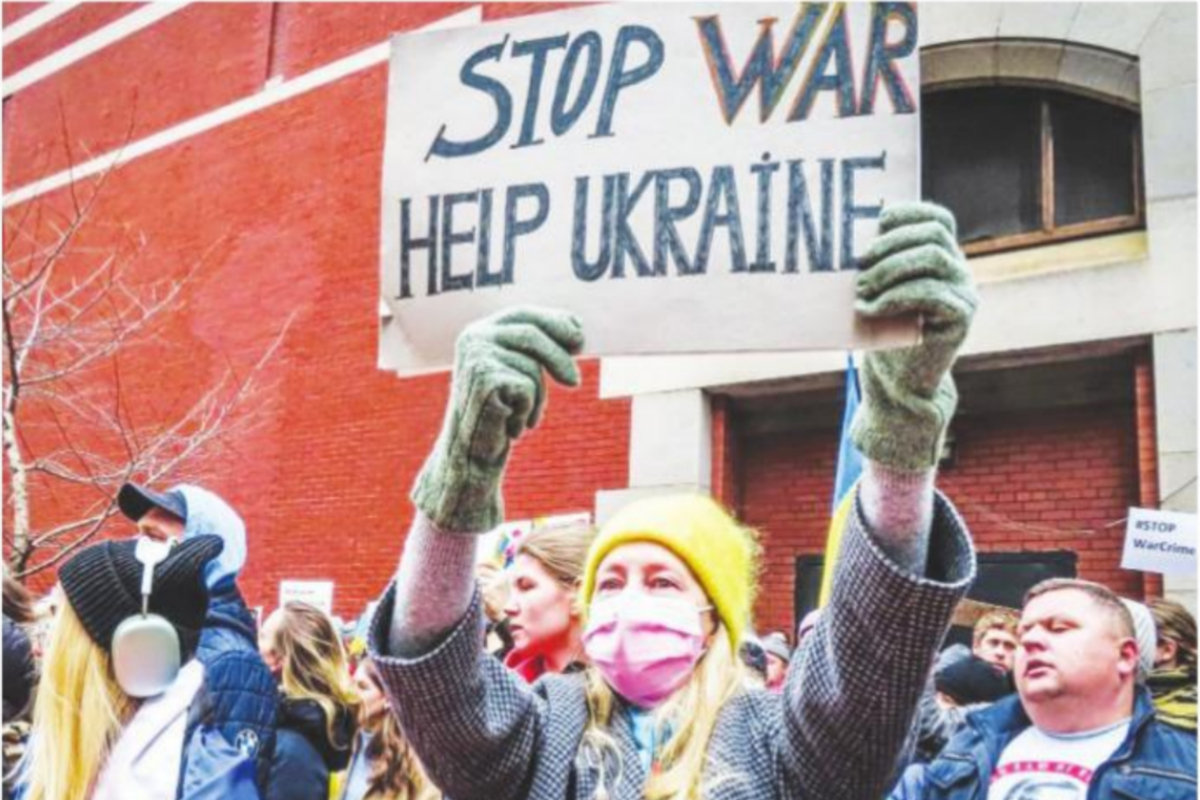The Ukraine War is such a horrible disaster that we must think seriously about how to get back to peace and stability. Reading Roman history during the Christmas holidays, I was struck by how the Romans were driven by almost perpetual war. Rome first consolidated power during the Punic wars against Carthage, but the spoils of war in Gaul, Syria and Egypt etc. became booty for aggressive consuls and generals like Julius Caesar to buy political votes in Rome. Ultimately, the war machine corrupted the Republic (rule by citizens) to Imperial status (rule by dictators). When domestic political decay occurred from a corrupt elite and discontented masses, the Roman empire collapsed under the weight on iinvading barbarians and its own debt. To Rome war was glorious, but it was paid by her unsung victims.
We are already on similar paths toward serious conflict. The 2022 Peace Research Institute Oslo (PRIO) annual conflict study reported that in 2021, 54 state-based conflicts occurred in 35 countries, with nearly 85,000 battle-related deaths. Since 1946, intra-state conflicts outnumbered inter-state conflicts; battle-deaths have been increasing, as have inter-state conflicts after the 1990s; with non-state players like crime cartels and terrorists playing significant roles.
Advertisement
These symptoms all show up in the Ukraine war, with the complex internal civil conflict between Catholic Ukrainians and Russian-speaking Ukrainians drawing in intervention by the Great Powers.
Thus far, Great Power contestation is contained only by mutual fear of all-out nuclear war. Whilst the outcome is unknown, the lines of that contest are becoming clearer. Unlike 1971, when the United States cleverly pulled China out of the Soviet camp, the Biden administration is rallying allies through the North Atlantic Treaty Organisation (NATO), AUKUS and Quad to try and contain Russia and China as existential threats.
Diplomacy is the art of negotiating through impossible conditions, in attempts to seek peace. Today, traditional diplomacy is unrecognizable, as the other side is demonized and every instrument is weaponized, from trade, finance, media to technology.
The old dictum of seeking peace by preparing for war does not mean that you go all out to provoke each other at every opportunity. That path sacrifices truth, trust, and co-operation. Global cooperation is vital to deal with universal threats such as climate warming, global inequalities in health and wealth and failing states. Most global citizens prefer peace to cope with their daily needs of food, health, security, and jobs.
Four megatrends today are converging towards global conflict. First, climate-related natural disasters, like typhoons, droughts and floods are devastating poor countries that cannot cope with the ensuing internal unrests. Their failures inevitably invite Great Power intervention. Second, rising population in Africa and Latin America will push massive migration outwards, increasing risks of border wars. Third, the world is splitting into energy blocs. Europe, Japan, China and India are short of energy, whilst America, Russia and Middle East are in surplus. As the US is today a competitor to Russia and the Middle East in oil and gas supplies, these suppliers may not want to price oil and gas in US dollars. Energy wars are morphing into currency wars. Fourth, these conflicts are turbo-charged by “Chip War”, since defense capacities are increasingly determined by semi-conductors, computing power, artificial intelligence, crypto-technology, and manufacturing prowess. In short, we have moved from a volatile, uncertain, complex, and ambiguous (VUCA) condition into a chaotic, accidental, fragile, and emotional (CAFE) phase where nothing can be taken for granted. Chaos emerges through the shift from unipolar to multipolar order, because no one is fully in charge. Accidents matter, because in a situation of mistrust, every event becomes reason for suspicion and tit-for-tat, escalating towards conflict. Fragility in social relations is spreading, as democratic governments are fragmented by weak coalitions, whilst autocracies tighten control to enforce their own legitimacy. The world is breaking into more and smaller states, with 193 UN members today, four times larger than 51 in 1945. In every country, internet social bubbles are amplifying emotional reactions to disputes over ethnicity, identity, religion, and culture.
In this age of anger and anxiety, wiser statesmen should steer us towards peace and rationality, rather than trying to divert that emotional energy towards war.
Unfortunately, few remember the UN Secretary General’s plea in March 2020 for a global ceasefire to focus on fighting the pandemic: “now is the time for a new collective push for peace and reconciliation.”
Christmas is a time for peace and goodwill to all. But the voices of those who advocate peace and rational negotiations are drowned by accusations of being “appeasers” or friends with the devil. Lulled by 77 years of peace and prosperity, a whole generation of current leaders have forgotten that 40 to 50 million died in World War Two, on top of 20 million alone in Europe during World War One.
With little sense of history or costs of war, this generation of leaders is glorifying war as if it is a Hollywood movie. In a nuclear World War Three, there are no final victories, only negotiated peace after total exhaustion or mutual annihilation. There is too much media Kool-Aid that there will be victory for the morally right. Four centuries of colonialism told those colonized that billions suffered humiliation, slavery and even genocide. Millions died, but billions survived, outliving colonialism. War will not bring about a new international order, because ultimately order cannot be domination by one victor, but a grand bargain between the many. Democracy in a multipolar world means not universal rules enforced by one state or ideology alone, but how we can live with each other, including conflict resolution. When the path to war is ultimately nuclear annihilation, peace through negotiations, however painful and humiliating for some, is the only chance for co-existence in a diverse world.











